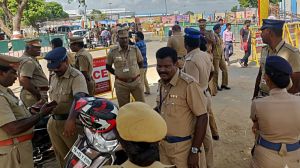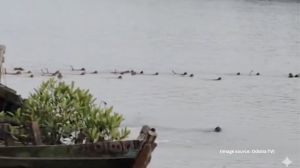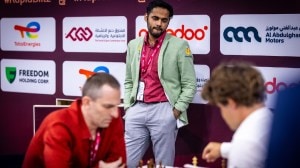Thus spake Musharraf8230;
President Pervez Musharraf finally delivered himself of the constitutional requirement of addressing a joint session of parliament. He had a...

President Pervez Musharraf finally delivered himself of the constitutional requirement of addressing a joint session of parliament. He had avoided it for a long time, afraid that he would be booed and heckled by an opposition baying for blood. This year began on a positive note for Musharraf. After much peek-a-boo, his handpicked government finally struck a deal with the MMA on the Legal Framework Order.
By most estimates he has done much better in the foreign policy domain than on the domestic political front. So it was understandable that he should have dwelt at length on foreign policy. The four areas identified by him related to Afghanistan, Kashmir, proliferation and extremism. On all four, he said, the international community was unhappy with Pakistan. The world accused Pakistan of abetting terrorism in Afghanistan and Kashmir. It is probably a first for any Pakistani president to refer to Kashmir in terms of the charge of terrorism and then go on to emphasise the imperative of a peaceful solution based on the Kashmiris8217; aspirations. A clear departure from traditional policy, it indicates that Pakistan is not only serious in pursuing the ongoing peace process with India but is also prepared to do major homework to change domestic perceptions.
On the issue of proliferation, Mr Musharraf assured the parliamentarians that Pakistan8217;s nuclear-weapons capability was crucial for the country8217;s survival and Pakistan would not only retain it but do whatever it can to augment it. Nonetheless, he said, Pakistan must assure the international community that it is a responsible country and has no intention of breaking the nonproliferation norm.
Finally, he mentioned the factor of extremism and extremist groups as the biggest danger the country faces. It was interesting to note the use of terminology. Musharraf called upon the Pakistanis to do jihad on extremism in an attempt to turn the concept around. It was a masterstroke because jihad is what gives these groups the legitimacy to generate violence. Musharraf strung this together with the assertion that the ummah is in disarray and Pakistan needs to play its part to correct that situation. The corollary was clear: the extremists invoke pan-Islamic brotherhood on the basis of non-acceptance of nation-states indeed, they look at nation-states as detrimental to the concept of the ummah.
We will be remiss to not draw Musharraf8217;s attention, yet again, to the fact that he needs to heed the logic of his own vision. The essential ingredient of that vision is a viable political process underscored by political parties and the acceptance by all actors of a basic norm. There are many indicators here for Musharraf. Why did some scientists choose, allegedly, to jump their brief? Why do some extreme groups decide to take on the world without regard for the country8217;s interest? If Musharraf chooses to look more deeply into the symbolism of coups, he would realise that the factors he has diagnosed 8212; correctly 8212; as grave dangers to Pakistan stem from the same illogic that drives coups. That should be a sobering thought, indeed.
This editorial appeared on Daily Times, January 18
- 01
- 02
- 03
- 04
- 05































